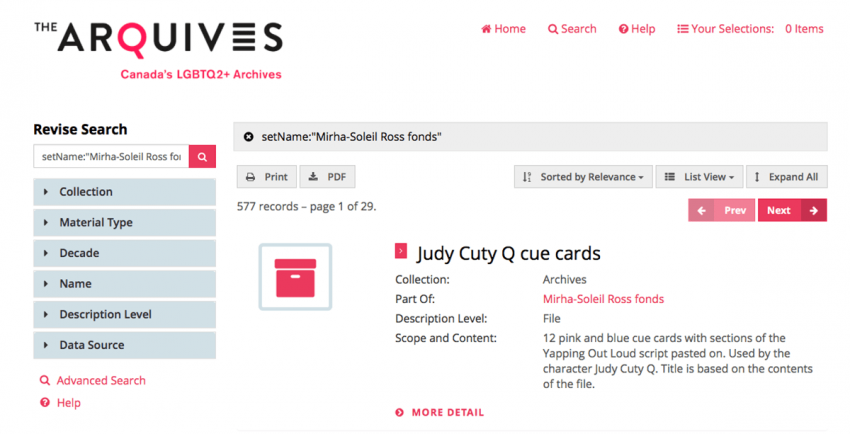By: Mandy Byron

From the beginning The ArQuives was aware of the impact and value of digital technology. As early as 1983, we secured a grant to purchase our first computer, and in 1991 we purchased the InMagic Database software to catalogue and describe different types of material. Overtime, our system grew to 15 separate databases with inconsistent data entry fields across the system and software quickly became obsolete, which could no longer be called a “flexible information management system.” Most importantly, the data could not be made available online, until this week when we launched our ArQuives Online and Accessible Database.

Making this happen was not an easy task. The work began in 2017, when Raegan Swanson reached out to library and archive digital consultants Andornot who provided us with a road map to make this happen. Raegan took this plan to various sponsors in the community to secure funding for the software and the staffing required to clean up the data, migrate it to the new system and then create the seamless interface that we now call our on-line database. Recognizing that remote access to our collection through an online database was critical to our long-term capacity as Canada’s largest LGBTQ2+ archive TD Bank came to the table in 2018 with funding to help us populate the database and clean up some of the data that had been migrated over from the old system. The Pride and Remembrance Foundation also generously supported this initiative designating The ArQuives as one of the recipients of the funds raised through the 2018 Pride and Remembrance Run.

Spending hundreds of hours on the project, archive assistant Charly Wreggitt was instrumental in cleaning up the existing data as well as adding fond level descriptions of our collections with the support of long-time volunteer Alan Miller. Systems are in place to ensure that as new collections are processed and described they will be integrated into the online database.
The result of this multi-year project is a search engine architecture and user interface that will allow researchers to search the diverse collection of The ArQuives, wherever they are located, to delve into the collections, see connections between items, request more information from The ArQuives, and find out more about LGBTQ2+ communities in Canada. Researchers will be able to easily search books, periodicals, audio and visual collections, posters, photograph, artwork, artifacts, and personal and organisational records from anywhere in Canada.

